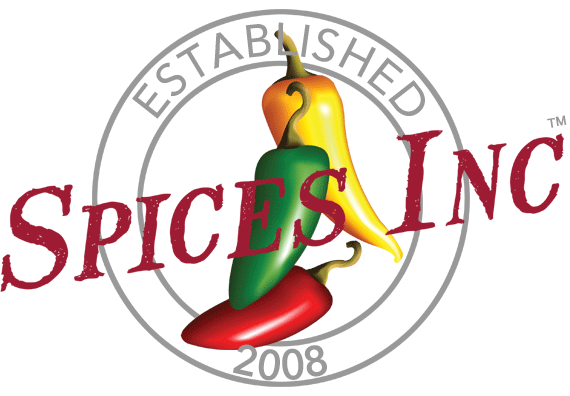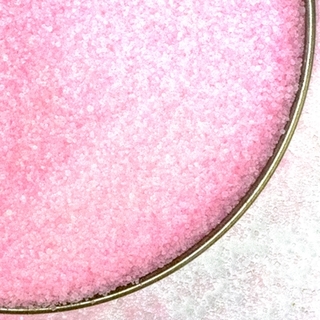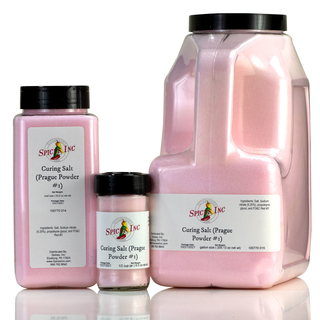Curing Salt (Prague Powder #1)
Curing Salt (Prague Powder #1)
Curing Salt, or Prague Powder #1, is a salt that has been tinted pink and is used exclusively for the preservation of food that requires short-term curing. It is also called Prague powder no. 1 curing salt, Prague powder, pink curing salt #1, tinted curing salt, or bulk curing salt.
Prague Powder #1 contains 6.25% sodium nitrite and 93.75% standard salt, along with a pink dye that allows a user to easily distinguish it from table salt. Curing salts are not meant for daily use.
This product is often sought after by:
- seasoning companies;
- independent spice shops;
- butchers;
- meat processors; and
- barbeque restaurants
Flavor Profile
Prague Powder #1 is extremely salty. It is not meant for daily use.
How To Use
Use Prague Powder #1 when making short-term cured items, like lox, items that are going to be brined, like corned beef, or items that will be cooked when the curing is complete, like bacon or sausage. Use 1 level teaspoon of curing salt per 5 pounds of meat or one ounce of powder per 25 pounds of meat.
Curing Salts like Prague Powder #1 are not meant for daily use.
| Also Called | Prague powder no. 1 curing salt, Prague powder, pink curing salt #1, tinted curing salt, or bulk curing salt |
| Ingredients | Salt, sodium nitrite (6.25%), propylene glycol (manufacturing aid) and FD&C Red #3 |
| Flavor Profile | Extremely salty |
| Recommended Uses | Curing meats, not for daily use or consumption |
| How To Store | Airtight container in a cool, dark place |
| Shelf Life | 1-2 years in dry conditions |
| Country of Origin | USA |
Nutrition Facts
Serving Size1 tsp
Amount Per Serving
Calories0
% Daily Value*
Total Fat0g0%
Saturated Fat0g0%
Trans Fat0g
Polyunsaturated Fat0g
Monounsaturated Fat0g
Cholesterol0mg0%
Sodium1790mg78%
Total Carbohydrate0.0g0%
Dietary Fiber0.0g0%
Total Sugars0.0g
Added Sugars0g0%
Sugar Alcohol0.0g
Protein0.0g0%
Vitamin D0mcg0%
Calcium0mg0%
Iron0mg0%
Potassium0mg0%
*The % Daily Value (DV) tells you how much a nutrient in a serving of food contributes to a daily diet. 2,000 calories a day is used for general nutrition advice. These values were calculated and therefore are approximate. For more accuracy, testing is advised.


